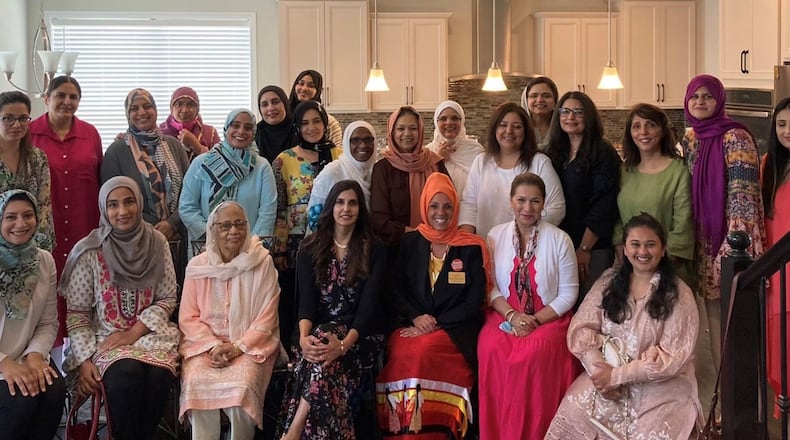The YWCA will provide 15 one-bedroom apartments for victims of domestic violence and 45 apartments for permanent supportive housing (PSH) for eligible homeless families. The YWCA has 31 currently staying at its Dayton Street facility.
This coming week, Waters-Connell anticipates another donation commitment from another group in the faith community, which means “there’s a belief in what we’re doing and support for what we’re doing.”
“That is so important for us, just to know it’s a measure of faith that we’re on the right track, and supplying the community with what we need,” she said.
Islamic Center of Greater Cincinnati, Cincinnati Muslim Women, and Pakistani American ladies for Social Welfare combined to collect and donate $15,000 to the YWCA. Afreen Asif said the donation was made because they believe in the YWCA cause of empowering women and eliminating racism.
“That is why a lot of us came together in support of this cause,” she said, adding that the faith community is not only standing up, but stepping up.
“We need to be able to provide and support the meek and to be able to come together,” Asif said. “What better cause than this is there to come together? I’m so inspired that everybody’s coming together to support the cause and to support this new center because it’s going to take care of the most vulnerable in our community.”
Bud Scharf, Zion Lutheran’s Outreach and Social Concerns Committee leader, said the church’s $10,000 donation from its members “demonstrates their passion of reaching out with God’s love by actively collaborating with many community organizations and agencies.”
Scharf said supporting the YWCA’s “important mission” is something others in the faith community, as well as civic organizations, should do.
Waters-Connell said the new YWCA building, which will be an upgrade from the building the 122-year-old organization has been in since 1931, should be done by November and the move into it by the first part of December.
“The YWCA has been here since 1900, and we’ve been a cornerstone of racial justice issues and women’s empowerment issues since that time,” she said. The support of the community is not just giving the YWCA sustainability for the mission and operational costs.
“It means that those issues are still a factor in modern society and that the YWCA continues to be relevant,” Waters-Connell said. “What it means is that we know there are people out there who believe in what we’re doing, and it makes a difference in the lives of the people that we serve.”
About the Author

